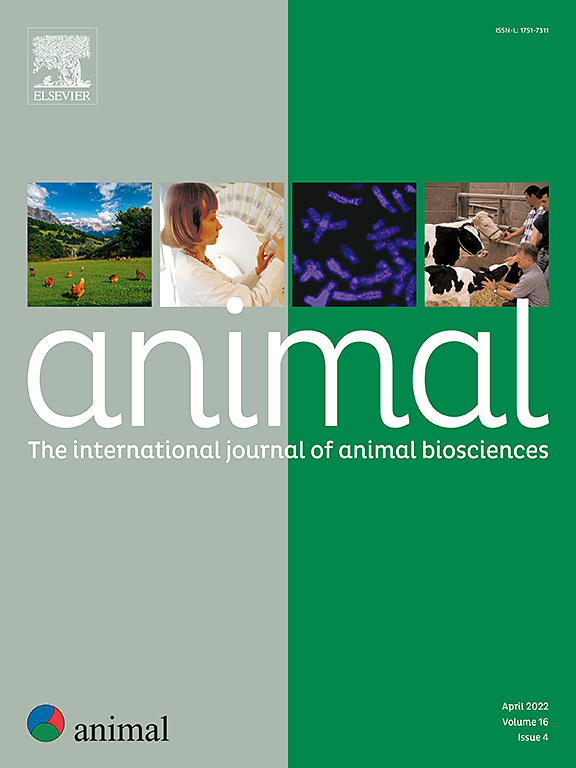确定可持续控制绵羊胃肠道线虫的障碍:社会科学的观点
IF 4
2区 农林科学
Q1 AGRICULTURE, DAIRY & ANIMAL SCIENCE
引用次数: 0
摘要
许多农民依靠驱虫药来控制绵羊的胃肠道线虫。针对世界各国报告的对虫虫耐药性水平上升的担忧,目前的建议是采取更可持续的做法。一项小规模的农民调查被用于与农民、兽医和驱虫处方者进行小组讨论,以更好地了解在英国各地的羊群中采用可持续的胃肠道线虫控制的障碍。对讨论的专题分析确定了四大变革障碍:看不到变革的必要性;在实施农场变革方面缺乏具体的信息和支持;对新办法缺乏信心;以及时间和成本等实际障碍。然而,也有一些可持续控制寄生虫的例子,一些农民改变了他们的习惯做法,通常是在他们的兽医或适当合格人员的支持下。我们通过能力、机会、动机作为行为驱动模型的视角来反思这些发现。这使人们注意到有必要建立一种知识交流过程,使建议能够适合个别农场,并利用农民的技能和经验,而不是期望农民遵循通用的建议。本文章由计算机程序翻译,如有差异,请以英文原文为准。
Identifying barriers to the sustainable control of gastro-intestinal nematodes in sheep: a social science perspective
Many farmers rely on anthelmintics to control gastrointestinal nematodes in sheep. In response to concerns about rising levels of anthelmintic resistance reported in countries around the world, current advice is to adopt more sustainable practices. A small−scale survey of farmers was used to inform group discussions with farmers, veterinarians and anthelmintic prescribers, to better understand barriers to the adoption of sustainable gastro-intestinal nematode control in sheep flocks across the United Kingdom. Thematic analysis of the discussions identified four barriers to change: not seeing the need for change; lack of specific information and support in implementing changes on farm; lack of confidence in the new approaches; and practical obstacles such as time and cost. Nevertheless, there were examples of sustainable parasite control with some farmers making changes to their habitual practices, typically with the support of their veterinarian or Suitably qualified person. We reflect on the findings through the lens of the Capability, Opportunity, Motivation as drivers of Behaviour model. This draws attention to the need for a process of knowledge exchange that allows advice to be tailored to individual farms and makes use of farmer skills and experiences, rather than expecting farmers to follow generic advice.
求助全文
通过发布文献求助,成功后即可免费获取论文全文。
去求助
来源期刊

Animal
农林科学-奶制品与动物科学
CiteScore
7.50
自引率
2.80%
发文量
246
审稿时长
3 months
期刊介绍:
Editorial board
animal attracts the best research in animal biology and animal systems from across the spectrum of the agricultural, biomedical, and environmental sciences. It is the central element in an exciting collaboration between the British Society of Animal Science (BSAS), Institut National de la Recherche Agronomique (INRA) and the European Federation of Animal Science (EAAP) and represents a merging of three scientific journals: Animal Science; Animal Research; Reproduction, Nutrition, Development. animal publishes original cutting-edge research, ''hot'' topics and horizon-scanning reviews on animal-related aspects of the life sciences at the molecular, cellular, organ, whole animal and production system levels. The main subject areas include: breeding and genetics; nutrition; physiology and functional biology of systems; behaviour, health and welfare; farming systems, environmental impact and climate change; product quality, human health and well-being. Animal models and papers dealing with the integration of research between these topics and their impact on the environment and people are particularly welcome.
 求助内容:
求助内容: 应助结果提醒方式:
应助结果提醒方式:


